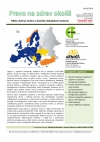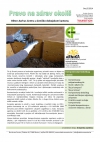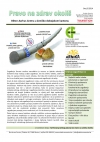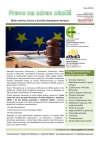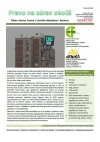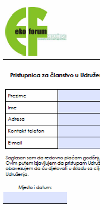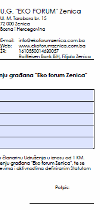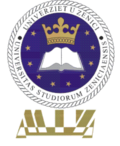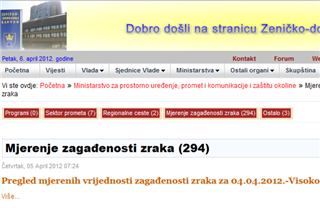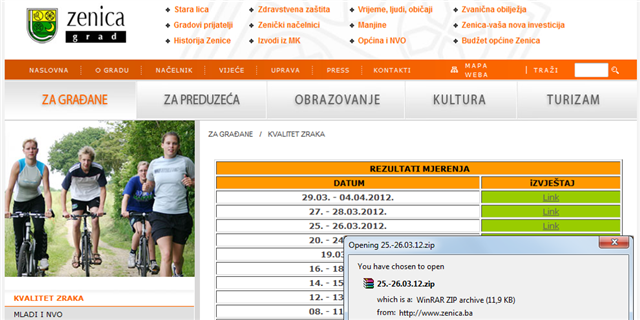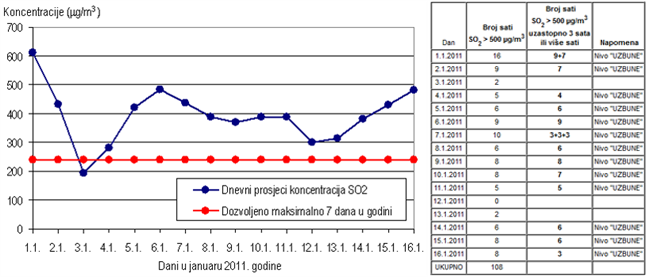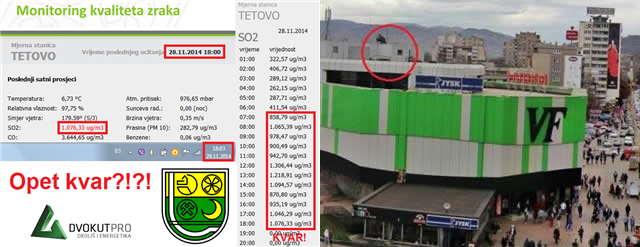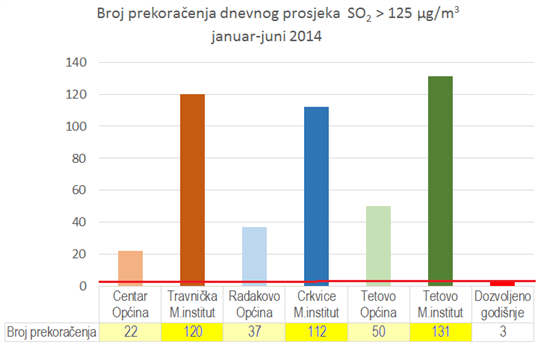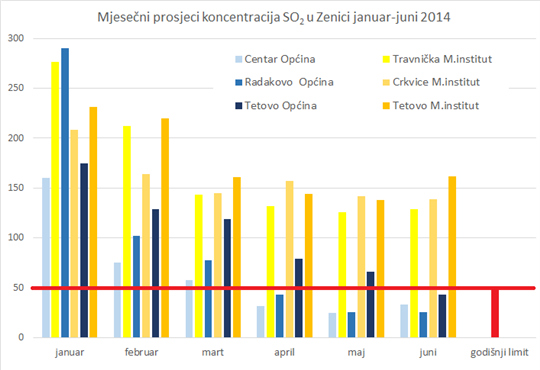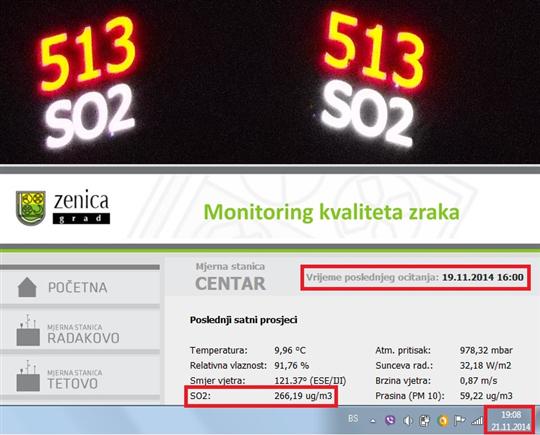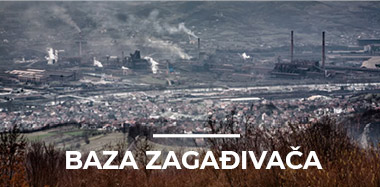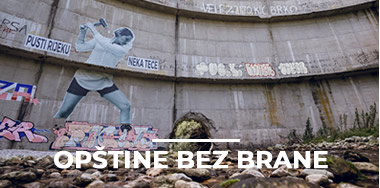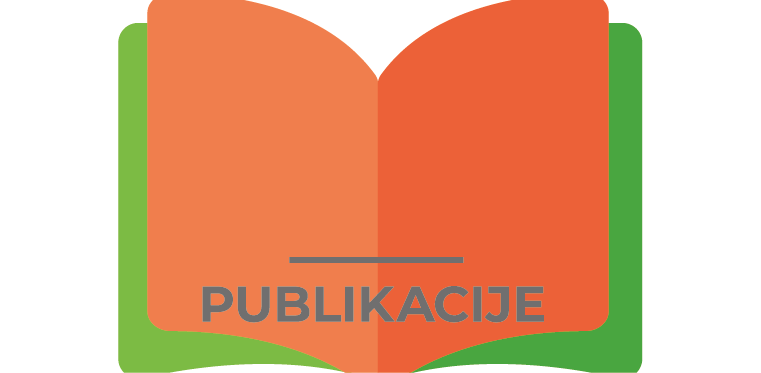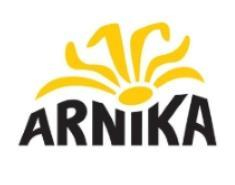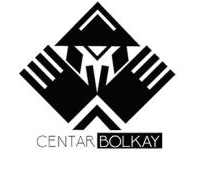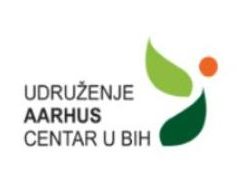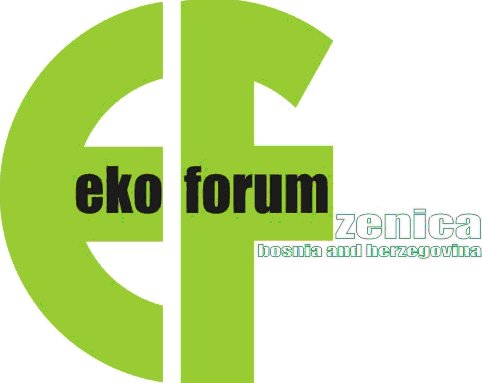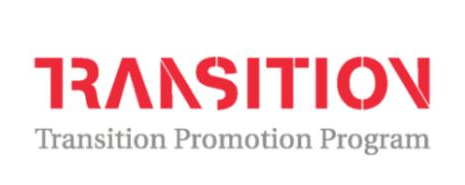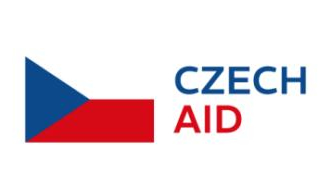Stranica
Newsletter "Right to a healthy envirionment"

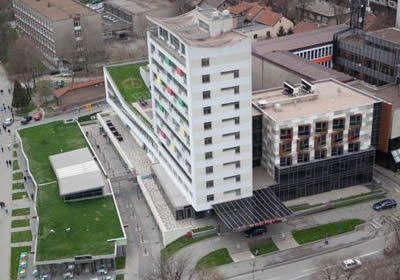 Association Eco-forum Zenica
Association Eco-forum ZenicaŠkolska 10 (Metalurg City Centar)
72000 Zenica
Bosna i Hercegovina
| E-mail: | This email address is being protected from spambots. You need JavaScript enabled to view it. |
| Kadić Azra | This email address is being protected from spambots. You need JavaScript enabled to view it. |
| Lemeš Igda | This email address is being protected from spambots. You need JavaScript enabled to view it. |
| Šišić Denis | This email address is being protected from spambots. You need JavaScript enabled to view it. |
| Lemeš Samir | This email address is being protected from spambots. You need JavaScript enabled to view it. |
134-010-00003713-39 Investiciono komercijalna banka Zenica
IBAN : BA391340071200118993
SWIFT: IKBZBA2X

- Regulations on plants and facilities which can be built and operated only with the environmental permit (14/13)
- The Law on Protection against noise (1/14)
- The Law on Protection of Environment (1/00)
- Law on announcement of natural monument "Tajan" (3/08)
- The law on delegation of public authority in the field of environmental protection (12/13)
- Plan for cases of excessive air pollution in the Zenica - Doboj Canton (1/13)

- Law on Free Access to Information in FBiH (32/01)
- Law on organization of administration in FBiH (35/05)
- Law on Federal Ministries and other bodies of the federal administration - consolidated text
- The Law on Civil Service in FBiH (4/12) - changes
- The Law on Civil Service in FBiH (8/06) - changes
- The Law on Civil Service in FBiH (23/04) - changesThe Law on Civil Service in FBiH (29/03)
- The Law on Civil Service in FBiH (39/04) - changes
- The Law on Civil Service in FBiH (54/04) - changes
- The Law on Civil Service in FBiH (67/05) - changes
- The Law on the grounds of jurisdiction of local government in FBiH (49/06)
- The Law on the grounds of jurisdiction of local government in FBiH (51/09) - changes
- The Law on Administrative Procedure in FBiH
- The Law on Administrative Disputes in FBiH
- The Law on Inspection in FBiH (73/14)
- The Law on Minor Offences in FBiH (63/14)
- The Law on Environmental protection in FBiH (33/03)
- Law on Amendments to the Law on Environmental Protection (39/09)
- The Law on Environmental Protection Fund in FBiH
- The Law on Nature Protection in FBiH (33/03)
- The Law on Water in FBiH (70/06)
- Regulation on Forests in FBiH (26/10) - changes
- Regulation on Forests in FBiH (38/10) - changes
- Regulation on Forests in FBiH (60/11) - changes
- Regulation on Forests in FBiH (83/09)
- The Law on conditions-manner of wood cutting in FBIH (25/06) - changes
- The Law on conditions-manner of wood cutting in FBIH (27/97)
- Law on Seeds and Seedlings of Forest and Horticultural Tree (8/10) - changes
- Law on Seeds and Seedlings of forest and horticultural species of trees and shrubs (71/05)
- Guide on Air Quality Monitoring (1/12)
- The Law on Air protection in FBiH (04/10) - changes
- The Law on Air protection in FBiH (33/03)
- The Law on Veterinary in FBiH (46/00)
- The Law on Hunting in FBiH (4/06)
- The Law on Hunting in FBiH (8/10) - changes
- The Law on Freshwater Fisheries in FBiH (64/04)
- The Law on Agriculture in FBiH (88/07)
- The Law on Agricultural Land in FBiH (52/09)
- The Law on protection from ionizing radiation in (15/99)
- The Law on Mining in FBiH (26/10)
- The Law on Geological Research in FBiH (9/10)
- The Law on Spatial Planning in FBiH (02/06)
- The Law on Spatial Planning in FBiH (04/10) - changes
- The Law on Spatial Planning in FBiH (13/10) - changes
- The Law on Spatial Planning in FBiH (32/08) - changes
- The Law on Spatial Planning in FBiH (72/07) changes
- The Law on Concessions in FBIH (40/02)
- The Law on Concessions in FBIH (61/06) - changes
- The Law on Electrical Energy in FBiH (66/13)
- The law on the use of renewable energy sources and efficient cogeneration (70/13)
- The Law on Waste Magement in FBiH (33/03)
- The Law on Waste Magement in FBiH (72/09) - changes
- The Law on National Park UNA (44/08)
- The Law on Healthcare in FBiH (46/10)
- The Law on Statistics in FBiH (9/09) - changes
- The Law on Statistics in FBiH (63/03)

- Aarhus Convention
- The Law on Free Access to Information - 26/11 (Changes)
- The Law on Free Access to Information - 28/00
- The Law on Free Access to Information - 45/06 (Changes)
- The Law on Free Access to Information - 102/09 (Changes)
- The Law on Council of Ministers of BiH
- The Law on government of BiH (consolidated text)
- The Law on ministries and other governance bodies in BiH (consolidated text)
- The Law on Civil Service in the BiH institutions (consolidated text)
- The Law on Administrative Procedure in BiH (12/04) - changes
- The Law on Administrative Procedure in BiH (41/13) - changes
- The Law on Administrative Procedure in BiH (88/07) - changes
- The Law on Administrative Procedure in BiH (92/02)
- The Law on Administrative Procedure in BiH (93/09) - changes
- The Law on Administrative Disputes in BiH (19/02)
- The Law on Administrative Disputes in BiH (74/10) - changes
- The Law on Administrative Disputes in BiH (83/08) - changes
- The Law on Administrative Disputes in BiH (88/07) - changes
- The Law on plant health protection in BiH (23/03)
- The Law on the Protection of New Varieties of Plants in BiH (14-10)
- The Law on the Protection of New Varieties of Plants in BiH (32/13) - changes
- The Law on seeds and plantning materials in BiH (03/05)
- The Law on veterinary in BiH (34/02)
- The Law on protection of animals in BiH (25/09)
- The Law on Agriculture, Food and Rural Development in BiH (50/08)
- The Law on Genetically Modified Organisms (23/09)
- The Law on Phyto-Pharmaceutical Products in BiH (49/04)
- The Law on concessions in BiH (32/02)/td>
- The Law on concessions in BiH (56/04) - changes
- The Law on radiation and nucleary safety in BiH (88/07)
- The Law on statistics in BiH (26/04)
The third pillar of the Aarhus Convention, access to justice, giving the public, or all citizens and associations representing them, the right to penalties for violations and compensation by public authorities in relation to access to information and public participation in the decision making process. The Aarhus Convention obliges States which ratified it to establish an appeals procedure, which must be adequate and effective. Legal decisions must be recorded in writing, and must be available to the public. Citizens need to be informed about the opportunities available to them to initiate administrative or judicial procedures. Government institutions must establish mechanisms to help to remove or reduce financial barriers to access to justice. The Aarhus Convention provides for access to justice as a right that is realized in the broadest possible sense. First, the basic criteria that states must respect are determined, and then the responsibility for the detailed determination of this right is imposed.
Recognizing the right of every person "to live in the environment favorable for good health and well-being", the Convention also covers all situations in which this right is not guaranteed. Furthermore, the Convention obliges states that have ratified the Convention to abandon any narrow view of access to justice. Established "sufficient interest" justifying judicial proceedings in accordance with the Convention. However, in practice there are often limitations imposed by national laws.
Human rights and the Aarhus Convention
Article 3 of the Law of the Federation of Bosnia and Herzegovina on Environmental Protection ("Official Gazette of BiH", No. 33/03) defines the "right to environment" as follows:
Every person has the right to a healthy and eco-friendly environment as a basic constitutional right.
Every human being has the right to live in an environment which is friendly for the health and well-being, therefore, it is an individual and collective duty to protect and improve the environment for the benefit of present and future generations.
The Aarhus Convention regulates the rights of man to live in an environment that ensures the health and welfare, and ensures that such an environment is preserved and improved in the interest of present and future generations. Convention extends this right to the right of citizens to access the information, to participate in decision-making and to be protected before the competent state authorities. These rights are universal human rights (right to information, the right to participate in decision-making, the right to judicial protection), which has long been located in the most important international documents on human rights. In this Convention, the rights were linked to the environment for teh first time.
Basic concepts and definitions
The public means one or more natural or legal persons and, in accordance with national legislation or practice, their associations, organizations or groups;
The public concerned means the public affected or likely to be affected or has an interest in making decisions concerning the environment.
Non-governmental organizations promoting environmental protection and meeting the other requirements of national legislation are considered to be interested in the sense of the foregoing definition, and before the public authorities do not have to prove a property of an interested party.
The judicial procedure
Each procedure before the judiciary (in the broad sense) is a procedure which preceded a law limiting the rights set. Proceedings before the Court involves at least two parties to the dispute, one whose rights have been violated, and on the other side of the breach. Without getting into the way in which a neutral and independent body (court) decision, fast procedure time "injustice" shortens, or violation of the right to fix. In practice, if one denied the right to information, and on the occasion that an action, it is essential that you will solve the injustice in what time frame. It is possible that the disposal solutions, lead to the inability of the decision or will not be repaired the injustice inflicted on the restriction of the right.
Equity
The right to a fair trial is one of the basic human rights and fundamental rights, explicitly stated in the European Convention on Human Rights and Fundamental Freedoms man. The Constitution of BiH guarantee the high level of protection of all human rights enshrined in the European Convention, which was the right constitutional right of every citizen of Bosnia and Herzegovina. Fairness is achieved through consistent compliance with the basic principles of procedures that include:
- The independence of the courts (and administrative bodies)
- Legality
- Equal treatment of parties
- The right of each party to be heard, and that her statements (evidence) are treated in the peer context as the evidence of other party
Transparency
One of the basic legal principles is transparency, i.e. openness of the proceedings. According to this principle, every citizen who has an interest or is likely his interest (the term used in the fields of legislation) has the right to monitor, or to have a full insight into the state of proceedings. This means that it has the full right to inspect the files, you can make copies of certain documents. From this rule the only exempt are records from deliberations, outline solutions, writings which were officially introduced as confidential and those records whose transparency can have a negative impact on the personal rights of a participant in the process.
The second pillar of the Aarhus Convention is based on the concept of public participation and is derived from the Principle 10 of Rio Declaration: Environmental Issues / environment are best solved with the participation of all concerned citizens at certain levels.
What are the minimum requirements / conditions for public participation?
In short, the Convention imposes the following basic requirements / conditions of public institutions of government:
- To inform the public about the process of public participation,
- To take the comments into account and inform the submitter comments.
Participation requires from public to be informed. It is therefore very important to provide and to make available precise, accurate and timely information to the public. Deadlines for public participation must be provided at the earliest possible stage, from the start of the first phase of the process, when all options are still open, according to pre-established schedule. Finally, public authorities must take into account the results of public participation in the process of making a final decision. The public must be informed of the type to which extent the results of public participation taken into account. If public opinion is not taken into account when making decisions, the authorities must explain the reasons for it.
Who benefits from the right to participate?
All interested citizens can participate in the consultation process. Non-governmental organizations dealing with environmental issues / environment are de-facto included in this target group under the Convention (Article 2.5).
What are the different types of decisions covered by the Convention?
There are four types of decisions concerning the right to public participation:
- Issuance of permits for certain activities or installations
This common form of public participation is mainly implemented for licensing, such as environmental permits. This applies when the approval for certain activities or projects is required, arising from particular sectors/activities that are believed to contain highly pollutants (chemicals, energy, waste, etc.) or can have a significant impact on the environment/environment. This allows the public to contribute to the decision-making process.
Two articles of the Aarhus Convention deal with this form of public participation:
Article 6 of the Convention provides the following measures:
· Information pertaining to the licensing of these activities or projects, must be freely available to the public.
· The relevant authorities must also inform the public about decisions and must justify them.
· The appeal procedure is provided (Article 9.2 of the Convention).
Article 6 bis, introduced in the Convention in the form of amendments in May 2005, specifically deals with the issue of approval related to GMOs (genetically modified organisms). - Development plans and programs in the field of environment
Article 7 of the Convention offers the public the opportunity to participate in the development of plans and programs. This refers to the tools established by the public authority responsible for the organization, in time and space, activities of which are closely or remotely affecting the environment. For example: plans relating to spatial planning and environmental strategy / environment related, for example, the fight against climate change, management / waste management, and strategies for the protection of nature. - The development of environmental policy
The Convention recommends that public authorities allow the public to participate in the development of environment policy (Article 7). - Preparation and drafting of legislation.
In the preparation and drafting of legislation the Convention recognizes the role of the public. Article 8 provides the liability of public authorities to implement the necessary actions for effective public participation. It can also be carried out through a representative advisory bodies or the inclusion of representatives of associations concerned with environmental issues / environmental working group for drafting policy.
The right of access to information is the first pillar of the Aarhus Convention. As such it is directly linked with democracy and transparency of public administration. The principles of the first pillar established a right that every person receives official environmental information held by public institutions. In this connection, it is not necessary to specifically explain the reason for the requested information, as it is not only that the applicant must be a citizen or resident of Bosnia and Herzegovina.
What is meant by "environmental information"?
The term "environmental information" implies that the public is entitled to request information about:
- State of the environment and its elements: air, water, land, landscape, natural values, etc .;
- Biodiversity including GMOs;
- Factors such as certain substances, energy, noise, radiation, disposal or discharge, etc., which is likely to have impact on the environment;
- Plans, programs, implementation of policies, legislation, economic analyzes, etc .;
- The state of human health, public safety, living conditions,
- State of cultural values and built structures that could have or have an impact on the environment.
The public may request written information (documents), as well as visual, audio or electronic data. In any case, the data must be present in the material form.
Who to ask?
The public may request information from any public institution, in other words by:
- administrative body / service (state, entity, cantonal and local),
- from any natural or legal persons in public administration, especially in relation to the environment,
- or institutions responsible for the provision of public services relating to the environment under the control of a body mentioned above.
Can public institution refuse to inform the public?
Public institutions and authorities may refuse to make the information publicly available in certain circumstances set forth in the Convention. Interpretation of the reasons for refusal must be explained very accurately and be related to the benefits of public interest. Furthermore, public institutions and authorities must explain why the request for information refused to allow the applicant to appeal against such decisions.
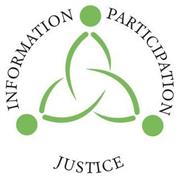
- Access to information
- Public participation in decision-making
- Access to justice
Question:
Answer:
|
Environmental permit is an administrative document that lays down measures for the protection of all components of the environment: air, water and soil. In the process of issuing the urban permit, the investor for the project which is considered to have or may have a negative impact on the environment, must first obtain an environmental permit. Issuance of the permit is regulated by the Law on Environmental Protection and the Law on Amendments to the Law on Environmental Protection, art. 54-74 or art.17-29 (Official Gazette of the Federation of BiH No. 33/03 and 38/09) Environmental permit is issued for new installations, before they are put into operation, and prior to the issuance of the environmental permit plants must go through the procedure of environmental impact assessment. The procedure for issuing permits for existing plants and facilities that have worked before the entry into force of the Law on Environmental Protection, is prescribed by specific regulations. The operator of such plants and facilities shall prepare the activity plan prior to applying for the environmental permit, with measures and deadlines for gradual reduction of emission (pollution) and to comply with best available technologies (BAT). Plan of activities is assessed by an expert commission, and if it is positively evaluated, the competent ministry issues a permit with a validity period of five years. In the process of environmental permitting and assessment of studies on the impact on the environment, the competent ministry informs and invites the public to a public hearing. Although the deadline for obtaining environmental permits for plants of ArcelorMittal Zenica expired in October 2008, the permits were issued with considerable delay, and without public hearing. For some plants, public hearings were held, but no one from the ministry responded on our observations, nor did we get answers to our questions sent on 17.2.2009. The activity plans and environmental permits did not contain the "zero state" of environmental pollution, so it is impossible to evaluate the effects of implemented projects. Eco forum has performed an independent analysis of the implementation of measures in the Action Plan, based on information available to us. With the aim of deeper analysis, we organized Roundtable on "Environmental permits ArcelorMittal Zenica 2009-2014", on June 26 2014. The round table was attended by Eco Forum activists, representatives of ArcelorMittal Zenica, Zenica Municipality, the Ministry of Tourism and Environment, Government of Zenica-Doboj Canton and the Inspection Directorate of FBiH. Federal Ministry of Environment and Tourism has formed a commission to produce reports on the implementation of certain projects in the plan of activities on the basis of which they issued the environmental permit for plants of ArcelorMittal Zenica. This report was scheduled to be completed in May 2013, but it was completed only at the end of 2013, and will serve as a basis for developing new environmental permits. Of the anticipated 200 measures, 186 of them were realized, but costs and complexity of 14 unrealized measures far exceeds implemented measures. The most expensive and most complex projects are still in the implementation phase. Federal Ministry of Environment and Tourism has prepared a draft of the new Law on Environmental Protection of FBiH, which provides for the issuance of IPPC. In addition to truly integrated water and urban planning consent being integrated in the permit, as required by adjusting the BiH legislation with the EU legislation, it is envisaged that an integrated permit includes more plants and facilities. For ArcelorMittal, this would mean issuing only one, integral (or more precisely, collective) environmental permit. Eco Forum considers that this approach is not acceptable and will strive that this provision of the law is changed before the adoption. Representatives of the Ministry are at the Round Table said that in issuing new environmental permit they will not conduct a public hearing. Eco forum will insist yet to be included in the process of issuing the permit. Given that five environmental permits expire in November / December 2014, and the remaining 3 in November 2015, the Ministry announced that it will issue a joint permit probably mid-2015, to the expected adoption of the new Law on Environmental Protection. Eco Forum addressed complaints to the Federal Ministry of Tourism and the environment in the context of public hearings about the draft of the new Law on Environmental Protection of FBiH in October 2014. The most important observations relating to the public participation in renewal of permits and the integrity of the permit. If the plant / installation which has an environmental permit has not fulfilled all obligations from the permit, the only situation provided is "shutdown and closure of the plant," without an alternative solution. We already have the case of such facilities (ArcelorMittal Zenica), where obligations from prior consent are not fulfilled, and the issuance of new ones is planned. Who is responsible for non-compliance or for eventual closure? These are too serious issues, environmentally, economically and socially to be left incomplete without the participation of the public. The term "integrity" in the draft of the new Law is completely misinterpreted. Instead of integrity in terms of the various permits, the concept of "collective license" is introduced for complex operators, without a clearly defined way of determining how the "collective" operation is determined. Collective permit should be issued only for technological units, regardless of location or operator. At the end of 2014, the environmental permit for five plants, two of which are big polluters (blast furnace and BOF converter) have already expired, and none of the authorities reacted to it. Therefore, Eco forum decided on law suits against the responsibles.
|
|
Law on Air Protection of FBiH is envisaged that the data on air quality, and concentrations of pollutants in the air, are measured, recorded and the public must be informed in an appropriate and understandable way. Since its founding, the Eco Forum Zenica is trying to contribute to a better and more accessible information on air quality to citizens. The first measurements of air quality in Zenica carried out by the Department for the Protection and Ecology at the Institute of Metallurgy "Kemal Kapetanović". The measurements performed by the Institute used methods that can give only daily averages, and with a delay of several days. Thus, the measurement results can be used only for subsequent analysis, and there was no possibility of applying intervention measures in episodes of high concentrations of air pollution. Emergency measures are taken if hour averages of concentrations of pollutants exceed a certain limit, so it is necessary to have measuring equipment that shows the hourly, not just daily averages. In 2009, Zenica-Doboj Canton and University of Zenica acquired the mobile measurement stations, which then gave data on hourly concentrations. After some time, a station of the University started to give illogical data, and soon it was discovered that it was never calibrated. Today, that station is not used. Mobile measuring station owned by the Canton Government was used in all municipalities in the Canton, and it was not possible to use this data for Emergency measures in Zenica. Data on the measurement results were published on the websites of the Municipality and Canton, but in a way that was not appropriate and understandable to citizens. Eco Forum occasionally used this information to graphically present it, we compared the data with the allowed limits and we published it on our website. The data from the Canton website were in the form of tables with numbers, without comparisons with limit values:
On the website of the Municipality, the data were further hidden in WinRAR archive:
Eco Forum was showing the results of air quality measurements this way:
After the protest march, organized by the Eco Forum in December 2012, the three fixed measurement stations were purchased, along with three displays and the website monitoring.zenica.ba, where one can find information about air quality. This system was first used in December 2013, when due to excessive concentration of SO2 alarm episode was declared, emergency measures have been taken and the pollution was reduced within a few hours, although these days there was no wind, rain and similar phenomena that could contribute to pollution reduction. During 2014, it was observed that the data the system displays are not always available, sometimes there is no communication between the server and measuring devices, and that the data is illogical, which caused us to question the validity of these results. It is not clear why the measuring station are located on the roof of the building, when the standards prescribed that these cells must be located on the ground level. From the Municipality of Zenica in June 2014, we received information that the technical approval of the measuring cell has not yet completed, so that the measurement results should be taken with some reserve. Maintenance contract for this system was signed with the supplier of equipment (company DvokutPro Sarajevo) for the period up to May 2015, when it is expected that the Metallurgical Institute "Kemal Kapetanović" will take these jobs. By then it should be completed equipping and accreditation of the Centre for Monitoring Air Quality of Zenica Doboj Canton, for what they have already secured funding in the budget of Zenica Doboj Canton. After objections of Eco Forum on the number and arrangement of the measuring cells (measuring station on the roof instead on the ground level, and the lack of measurement on the right bank of the river Bosna - the villages of Gračanica, Pehare, Vraca), it was concluded that the Municipality will send to Eco forum a copy of the Studies made by the Polytechnic University Turin on building a system for monitoring air quality in Zenica, on the basis of which the locations were selected, in order to better discuss this issue. The establishment of the Centre of Metallurgy Institute will solve the existing problems of measuring equipment calibration, and the system will be connected with two mobile measuring stations. Data on the air monitoring website are often not up to date, especially on weekends, when the pollution is higher
At the session of the City Council held on 20.11.2014 the two reports on the measurement of air quality in Zenica in the first half of 2014 were presented, one prepared by the department of Ecology of the Municipality / City of Zenica, and the other prepared by the Institute of Metallurgy "Kemal Kapetanović" in Zenica. The reports revealed that the data given by the measuring station owned by the Municipality / City of Zenica are significantly different from those given by the Institute. Eco forum pointed out that monitoring stations are not set to the correct location, that after two years of use they have not yet been calibrated, which means that the data which are presented to the citizens is absolutely useless, and it is not known who was responsible for it. We pointed out the problems with the server monitoring.zenica.ba, which is often at a standstill and does not perform its function, then the non-use of mobile measuring stations owned by the Zenica-Doboj Canton and the University, and the failure to call representatives of the Eco Forum in sessions of the Emergency Team for the implementation of measures in cases of excessive pollution. The diagram shows the differences in the number of registered number of days exceeding the daily average of sulfur dioxide in Zenica. The permitted number of overdrafts during the year is three. The measurements of urban monitoring system showed 20-50 overruns and measurements of the Institute show 110-130 overruns during only six months.
The diagram shows the differences in the results of measurements of monthly concentrations of sulfur dioxide, measured by the municipality (shown in yellow) and by the Institute (shown in blue). One can clearly see the differences in the results.
A website which should be updated and show the results of measurements per hour, shows the measured value, but it happens that data is delayed by several days. The picture shows how the communication between the metering station and server was interrupted on 19/11/2014, and two days later, when the concentration of sulfur dioxide exceeded the value for the declaration of emergency, it can be known only by those who see the city display.
|
|
||||||||||||||||||||
Pitanje:
Odgovor:

- Pravilnik o pogonima i postrojenjima koji mogu biti izgrađeni i pušteni u rad samo ako imaju okolinsku dozvolu (14/13)
- Zakon o zaštiti od buke (1/14)
- Zakon o zaštiti okoline ZDK (1/00)
- Zakon o proglašenju Spomenika prirode "Tajan" (3/08)
- Zakon o povjeravanju javnih ovlaštenja iz oblasti zaštite okoliša (12/13)
- Plan interventnih mjera u slučajevima prekomjerne zagađenosti zraka na području Zeničko - dobojskog kantona (1/13)

- Zakon o slobodi pristupa informacijama FBiH (32/01)
- Zakon o organizaciji organa uprave u FBiH (35/05)
- Zakon o federalnim ministarstvima i drugim tijelima federalne uprave - prečišćeni tekst
- Zakon o državnoj službi u FBiH (4/12) - izmjene
- Zakon o državnoj službi u FBiH (8/06) - izmjene
- Zakon o državnoj službi u FBiH (23/04) - izmjeneZakon o državnoj službi u FBiH (29/03)
- Zakon o državnoj službi u FBiH (39/04) - izmjene
- Zakon o državnoj službi u FBiH (54/04) - izmjene
- Zakon o državnoj službi u FBiH (67/05) - izmjene
- Zakon o prinadležnostima lokalne samouprave FBiH (49/06)
- Zakon o prinadležnostima lokalne samouprave FBiH (51/09) - izmjene
- Zakon o upravnom postupku FBiH
- Zakon o upravnim sporovima FBiH
- Zakon o inspekcijama u FBiH (73/14)
- Zakon o prekršajima u FBiH (63/14)
- Zakon o zaštiti okoliša FBiH (33/03)
- Zakon o izmjenama i dopunama Zakona za zaštitu okoliša (39/09)
- Zakon o Fondu za zaštitu okoliša FBiH
- Zakon o zaštiti prirode FBiH (33/03)
- Zakon o vodama FBiH (70/06)
- Uredba o šumama FBiH (26/10) - izmjene
- Uredba o šumama FBiH (38/10) - izmjene
- Uredba o šumama FBiH (60/11) - izmjene
- Uredba o šumama FBiH (83/09)
- Zakon o uvjetima-načinu obavljanja djelatnosti rezanja drveta FBIH (25/06) - izmjene
- Zakon o uvjetima-načinu obavljanja djelatnosti rezanja drveta FBIH (27/97)
- Zakon o sjemenu i sadnom materijalu šumskih i hortikulturnih vrsta drveća (8/10) - izmjene
- Zakon o sjemenu i sadnom materijalu šumskih i hortikulturnih vrsta drveća i grmlja (71/05)
- Pravilnik o monitoringu kvaliteta zraka (1/12)
- Zakon o zaštiti zraka FBiH (04/10) - izmjene
- Zakon o zaštiti zraka FBiH (33/03)
- Zakon o veterinarstvu FBiH (46/00)
- Zakon o lovstvu FBiH (4/06)
- Zakon o lovstvu FBiH (8/10) - izmjene
- Zakon o slatkovodnom ribarstvu FBiH (64/04)
- Zakon o poljoprivredi FBiH (88/07)
- Zakon o poljoprivrednom zemljištu FBiH (52/09)
- Zakon o zaštiti od jonizirajućeg zračenja (15/99)
- Zakon o rudarstvu FBiH (26/10)
- Zakon o geološkim istraživanjima FBiH (9/10)
- Zakon o prostornom planiranju FBiH (02/06)
- Zakon o prostornom planiranju FBiH (04/10) - izmjene
- Zakon o prostornom planiranju FBiH (13/10) - izmjene
- Zakon o prostornom planiranju FBiH (32/08) - izmjene
- Zakon o prostornom planiranju FBiH (72/07) izmjene
- Zakon o koncesijama FBIH (40/02)
- Zakon o koncesijama FBIH (61/06) - izmjene
- Zakon o električnoj energiji FBiH (66/13)
- Zakon o korištenju obnovljivih izvora energije i efikasne kogeneracije (70/13)
- Zakon o upravljanju otpadom FBiH (33/03)
- Zakon o upravljanju otpadom FBiH (72/09) - izmjene
- Zakon o nacionalnom parku UNA (44/08)
- Zakon o zdravstvenoj zaštiti FBiH (46/10)
- Zakon o statistici FBiH (9/09) - izmjene
- Zakon o statistici FBiH (63/03)

- Aarhuška Konvencija
- Zakon o slobodi pristupa informacijama - 26/11 (Izmjene)
- Zakon o slobodi pristupa informacijama - 28/00
- Zakon o slobodi pristupa informacijama - 45/06 (Izmjene)
- Zakon o slobodi pristupa informacijama - 102/09 (Izmjene)
- Zakon o Vijeću ministara BiH
- Zakon o upravi BiH (prečišćen)
- Zakon o ministarstvima i drugim organima uprave BiH (prečišćen)
- Zakon o državnoj službi u institucijama BiH (prečišćen)
- Zakon o upravnom postupku BiH (12/04) - izmjene
- Zakon o upravnom postupku BiH (41/13) - izmjene
- Zakon o upravnom postupku BiH (88/07) - izmjene
- Zakon o upravnom postupku BiH (92/02)
- Zakon o upravnom postupku BiH (93/09) - izmjene
- Zakon o upravnim sporovima BiH (19/02)
- Zakon o upravnim sporovima BiH (74/10) - izmjene
- Zakon o upravnim sporovima BiH (83/08) - izmjene
- Zakon o upravnim sporovima BiH (88/07) - izmjene
- Zakon o zaštiti zdravlja bilja BiH (23/03)
- Zakon o zaštiti novih sorti bilja u BiH (14/10)
- Zakon o zaštiti novih sorti bilja u BiH (32/13) - izmjene
- Zakon o sjemenu i sadnom materijalu BiH (03/05)
- Zakon o veterinarstvu u BiH (34/02)
- Zakon o zaštiti dobrobiti životinja u BiH (25/09)
- Zakon o poljoprivredi, prehrani i ruralnom razvoju BiH (50/08)
- Zakon o genetski modificiranim organizmima (23/09)
- Zakon o fitofarmaceutskim sredstvima BiH (49/04)
- Zakon o koncesijama BiH (32/02)/td>
- Zakon o koncesijama BiH (56/04) - izmjene
- Zakon o radijacijskoj i nuklearnoj sigurnosti u BiH (88/07)
- Zakon o statistici BiH (26/04)
Treći stub Aarhuske konvencije, pristup pravosuđu, daje javnosti, odnosno svim građanima i udruženjima koja ih predstavljaju, pravo na kaznene mjere za prekršaje i obeštećenje od strane javnih organa u vezi sa pristupom informacijama i učešćem javnosti u procesu donošenja odluka. Aarhuska konvencija obavezuje države potpisnice da uspostave žalbeni postupak, koji mora biti adekvatan i efektivan. Pravne odluke moraju biti zabilježene u pisanoj formi, i moraju biti dostupne javnosti. Građani moraju biti informisani o mogućnostima koje su im dostupne za pokretanje upravne ili sudske procedure. Institucije vlasti moraju uspostaviti mehanizme pomoći za uklanjanje ili smanjivanje novčanih prepreka pristupu pravdi. Aarhuska konvencija predviđa pristup pravosuđu kao pravo koje se ostvaruje u najširem mogućem smislu. Prvo se utvrde osnovni kriteriji koje države moraju poštovati, a zatim nameće državama odgovornost za detaljno određivanje ovog prava.
Prepoznajući pravo svake osobe "da živi u životnoj sredini pogodnoj za dobro zdravlje i blagostanje", Konvencija takođe pokriva sve situacije u kojima to pravo nije zagarantovano. Nadalje, Konvencija obavezuje države koje su ratifikovale Konvenciju da napuste bilo koji uski pogled na pristup pravosuđu. Utvrđen "dovoljan interes" opravdava sudski postupak u skladu sa Konvencijom. Međutim, u praksi često postoje ograničenja koja postavljaju nacionalni zakoni.
Ljudska prava i Aarhuska konvencija
Član 3. Zakona Federacije BiH o zaštiti okoliša ("Službene novine FBiH", broj 33/03) definiše "Pravo na okoliš" na sljedeći način:
Svako lice ima pravo na zdrav i ekološki prihvatljiv okoliš kao osnovno ustavno pravo.
Svako ljudsko biće ima pravo na život u okolišu podobnom za zdravlje i blagostanje, stoga je individualna i kolektivna dužnost zaštiti i poboljšati okoliš za dobrobit sadašnjih i budućih generacija.
Aarhuska konvencija reguliše pitanje prava čovjeka da živi u sredini koja obezbjeđuje zdravlje i dobrobit, a obavezuje i da se takav okoliš čuva i unapređuje u interesu sadašnjih i budućih generacija. Konvencija ovo pravo proširuje pravom građana na pristup informacijama, na učešće u donošenju odluka i zaštitom pred nadležnim državnim organima. Ta prava su opšta ljudska prava (pravo na informisanost, pravo na učešće u odlučivanju, pravo na sudsku zaštitu) koja se odavno nalaze u najvažnijim međunarodnim dokumentima u oblasti ljudskih prava. U ovoj konvenciji se ta prava prvi put vezuju za okoliš.
Osnovni pojmovi i definicije
Javnost znači jedno ili više fizičkih ili pravnih lica i, u skladu s nacionalnim zakonodavstvom ili praksom, njihova udruženja, organizacije ili grupe;
Zainteresovana javnost znači javnost koja je ugrožena ili će vjerovatno biti ugrožena ili ima interes u donošenju odluka koje se tiču okoline.
Nevladine organizacije koje promovišu zaštitu okoline i koje ispunjavaju druge uslove iz nacionalnog zakonodavstva smatraju se zainteresovanim u smislu prethodne definicije, te pred organima javnih vlasti ne moraju dokazivati svojstvo zainteresovanog lica.
Pravosudni postupak
Svaki postupak pred organom pravosuđa (u širem smislu) je postupak kojem je prethodilo neko ograničavanje zakonom postavljenog prava. Postupak pred sudom podrazumijeva najmanje dvije strane u sporu, jedna čije je pravo povrijeđeno, a s druge strane strana koja je izvršila povredu. Ne ulazeći u način na koji neutralni i nezavisni organ (sud) odlučuje, brzim postupkom se vrijeme "nepravde" skraćuje, odnosno povreda prava se sanira. U praksi, ukoliko je nekom uskraćeno pravo na informaciju, pa se povodom toga povede postupak, bitno je da li će se nepravda riješiti i u kojem roku. Moguće je da će odlaganje rješenja, dovesti do nemogućnosti rješenja, odnosno neće biti popravljena nepravda koja je nanijeta ograničenjem prava.
Pravičnost
Pravo na pravičan postupak je jedno od osnovnih ljudskih prava i osnovnih prava, izričito navedeno u Evropskoj konvenciji o ljudskim pravima i osnovnim slobodama čovjeka. Ustav BiH je zagarantovao visok stepen zaštite svih ljudskih prava sadržanih u Evropskoj Konvenciji, čime je ovo pravo ustavno pravo svakog građanina BiH. Pravičnost postupka se ostvaruje kroz dosljedno poštovanje osnovnih načela postupaka koje podrazumijevaju:
- Nezavisnost sudova (i upravnih organa)
- Zakonitost
- Jednak tretman stranaka
- Pravo svake stranke da bude saslušana, te da se njena izjava (dokazi) tretiraju u ravnopravnom kontekstu kao i dokazi druge strane
Transparentnost
Jedno od osnovnih pravnih načela je transparentnost, otvorenost postupka. Po ovom načelu, svaki građanin koji ima interes ili je njegov interes vjerovatan (izraz koji se koristi u za konodavstvu) ima pravo da prati, odnosno da ima puni uvid o stanju postupka. Ovo znači da ima puno pravo uvida u spise, da može da fotokopira pojedina dokumenta. Od ovog pravila su izuzeti samo zapisnici sa vijećanja, nacrti rješenja, spisi koji su zvanično uvedeni kao povjerljivi i oni spisi čija transparentnost može imati negativan uticaj na lična prava nekog od učesnika u postupku.
Drugi stub Arhuske konvencije je zasnovan na konceptu učešća javnosti i izveden je iz Principa 10 Rio Deklaracije: Pitanja životne sredine/okoliša se najbolje rješavaju uz učešće svih zainteresovanih građana na određenim nivoima.
Koji su minimalni uslovi/uvjeti za učešće javnosti?
Ukratko, Konvencija nameće sljedeće osnovne uslove/uvjete javnim institucijama vlasti:
- da informiše javnost o procesu učešća javnosti,
- da uzme komentare u obzir i o tome obavijesti podnosioca komentara.
Učešće zahtijeva informisanost. Stoga je vrlo važno da se javnosti obezbijede i učine dostupnim precizne, tačne i pravovremene informacije. Rokovi za učešće javnosti moraju biti predviđeni u najranijoj mogućoj fazi, od samog početka prve faze procesa, kada su sve opcije još uvijek otvorene, a prema unaprijed utvrđenim rasporedom. Konačno, javne vlasti moraju uzeti u obzir rezultate učešća javnosti u procesu donošenja konačne odluke. Javnost mora biti obaviještena o načinu u kojoj mjeri su rezultati učešća javnosti uzeti u obzir. Ako se javno mišljenje ne uzme u obzir prilikom donošenja odluka, vlasti moraju objasniti razloge za to.
Ko ima koristi od prava na učešće?
Svi zainteresovani građani mogu učestvovati u procesu konsultacija. Nevladine organizacije koje se bave pitanjima životne sredine/okoliša su de-facto uključene u ovu ciljnu grupu po Konvenciji (Član 2.5).
Koji su različiti tipovi odluka koje pokriva Konvencija?
Postoje četiri tipa odluka koji se tiču prava na učešće javnosti:
- Izdavanje dozvola za određene aktivnosti ili instalacije
Ovaj česti oblik učešća javnosti se uglavnom provodio za izdavanje dozvola, kao što su okolinske/ekološke dozvole. To se primjenjuje kada se zahtijeva odobrenje za određene aktivnosti ili projekte koji proizlaze iz pojedinih sektora/djelatnosti za koje se smatra da sadrže visoko onečišćujuće tvari (hemijska industrija, energetika, otpad, itd.) ili mogu imati značajan uticaj na životnu sredinu/okoliš. To omogućava javnosti da doprinese postupku donošenja odluka. Dva Člana Arhuske konvencije se bave ovim oblikom učešća javnosti:
Član 6. Konvencije osigurava sljedeće mjere:
· Informacije koje se odnose na izdavanje dozvola za ove aktivnosti ili projekti, moraju biti besplatno dostupni javnosti.
· Nadležne vlasti također moraju informisati javnost o odlukama i moraju ih opravdati.
· Žalbeni postupak je predviđen (Član 9,2 Konvencije).
Član 6. bis, uveden u Konvenciji u obliku izmjena i dopuna u maju 2005 godine, posebno se bavi pitanjem odobrenja vezanih za GMO (genetski modifikovani organizmi). - Razvoj planova i programa u oblasti životne sredine/okoliša
Član 7. Konvencije nudi javnosti mogućnost učešća u razvoju planova i programa. To se odnosi na alate uspostavljene od strane tijela javne organa nadležnog za organizaciju, u vremenu i prostoru, aktivnosti društva koje usko ili na daljinu utiču na životnu sredinu/okoliš ili životno okruženje. Na primjer: izrađeni planovi koji se odnose na prostorno planiranje ili strategiju zaštite životne sredine/okoliša u vezi, na primjer, borba protiv klimatskih promjena, upravljanja/gospodarenja otpadom, ili strategije za zaštitu prirode. - Razvoj politika životne sredine/okoliša
Konvencija preporučuje da javne vlasti omoguće javnosti da učestvuje u razvoju politike životne sredine/okoliša (Član 7). - Priprema i izrada zakonskih propisa.
U pripremi i izradi zakonskih propisa Konvencija prepoznaje ulogu javnosti. Član 8. daje na odgovornost javnim vlastima da sprovode potrebne aktivnosti za efektivno učešće javnosti. To se isto tako može odvijati preko predstavnika savjetodavnih tijela ili uključivanjem predstavnika udruženja koja se bave pitanjima životne sredine/okoliša u radne grupe za izradu politika.
Pravo na pristup informacijama je prvi stub Aarhuške konvencije. Kao takvo je direktno povezano sa demokratijom i transparentnošću javne administracije. Principi prvog stuba uspostavili su pravo da svaka osoba dobije zvanične informacije o životnoj sredini koje posjeduju javne institucije. S tim u vezi, nije potrebno posebno objašnjenje iz kojeg razloga se upućuje zahtjev za informacijama, kao što nije isključivo da podnosilac zahtjeva mora biti državljanin ili stanovnik Bosne i Hercegovine.
Šta se podrazumijeva pod "informacija o životnoj sredini"?
Izraz "informacija o životnoj sredini" podrazumijeva da javnost ima pravo zahtijevati informacije o:
- stanju životne sredine i njegovih elemenata: vazduh, voda, zemljište, pejzaž, prirodne vrijednosti, itd.;
- biodiverzitetu uključujući GMO;
- faktorima kao što su određene supstance, energija, buka, zračenje, odlaganje ili pražnjenja, itd., koji će vjerovatno imati uticaj na životnu sredinu;
- planovima, programima, sprovođenju politika, zakonodavstvu, privrednim analizama, itd.;
- stanju ljudskog zdravlja, javnoj sigurnosti, uslovima života,
- stanju kulturnih vrijednosti i izgrađenih struktura koje bi mogle imati ili imaju uticaj na stanje životne sredine.
Javnost može zahtijevati pismenu informaciju (dokumente), kao i vizuelne, audio ili elektronske podatke. U svakom slučaju, podaci moraju postojati u materijalnom obliku.
Koga trebate pitati?
Javnost može zahtijevati informacije od bilo koje javne institucije, drugim riječima od:
- administrativnih tijela/službi (državnih, entitetskih, kantonalnih, lokalnih),
- od bilo koje fizičke ili pravne osobe u javnoj upravi, posebno u odnosu na životnu sredinu,
- ili institucije nadležne za pružanje javnih usluga koje se odnose na životnu sredinu pod kontrolom tijela koje je gore spomenuto.
Može li javna institucija odbiti da informiše javnost?
Javne institucije i vlasti mogu odbiti da informaciju učine javno dostupnom u određenim slučajevima koji su navedeni u Konvenciji. Interpretacija razloga odbijanja mora biti objašnjena veoma tačno i biti u vezi sa koristima javnog interesa. Nadalje, javne institucije i vlasti moraju objasniti zašto je zahtjev za pristup informacijama odbijen kako bi omogućili podnosiocu zahtjeva da podnese žalbu protiv takve odluke.

- Pristup informacijama
- Učešće javnosti u procesu donošenja odluka
- Pristup pravosuđu
 Udruženje Eko-forum Zenica
Udruženje Eko-forum ZenicaŠkolska 10 (Metalurg City Centar)
72000 Zenica
Bosna i Hercegovina
| E-mail: | This email address is being protected from spambots. You need JavaScript enabled to view it. |
| Kadić Azra | This email address is being protected from spambots. You need JavaScript enabled to view it. |
| Lemeš Igda | This email address is being protected from spambots. You need JavaScript enabled to view it. |
| Šišić Denis | This email address is being protected from spambots. You need JavaScript enabled to view it. |
| Lemeš Samir | This email address is being protected from spambots. You need JavaScript enabled to view it. |
134-010-00003713-39 Investiciono komercijalna banka Zenica
IBAN : BA391340071200118993
SWIFT: IKBZBA2X
Bilten "Pravo na zdrav okoliš;"



